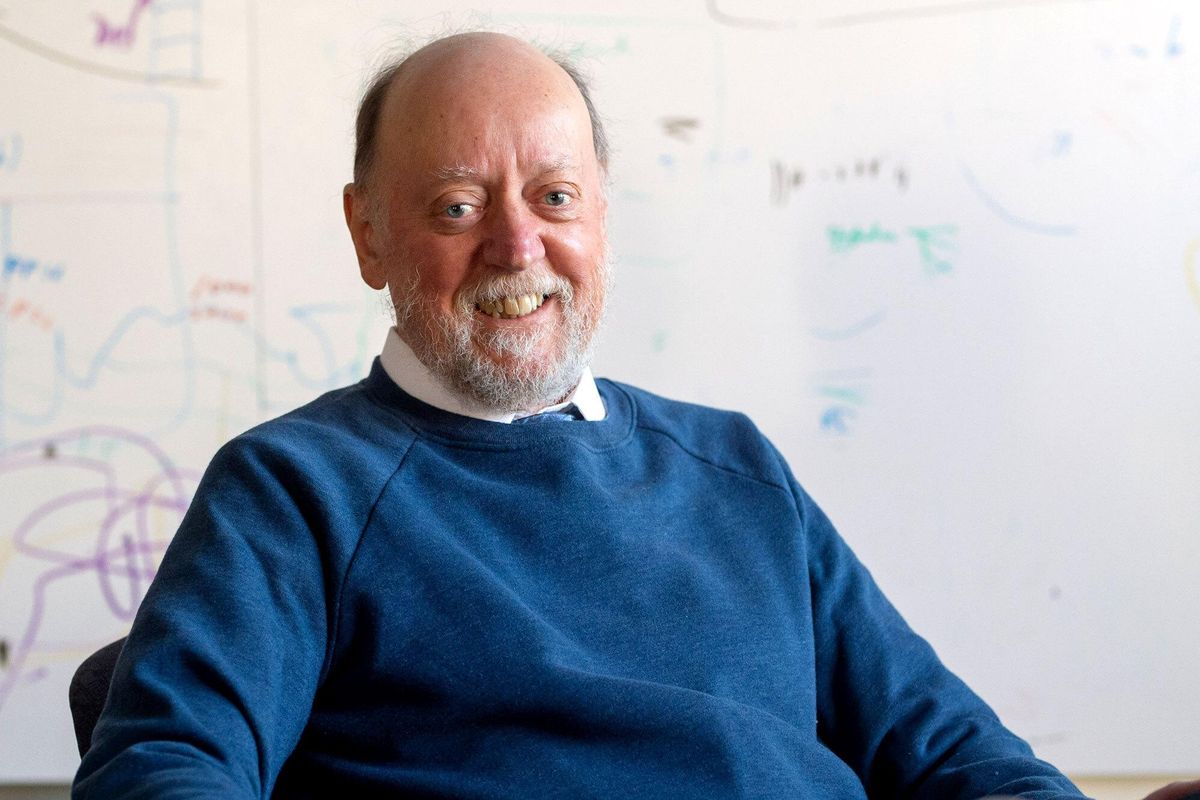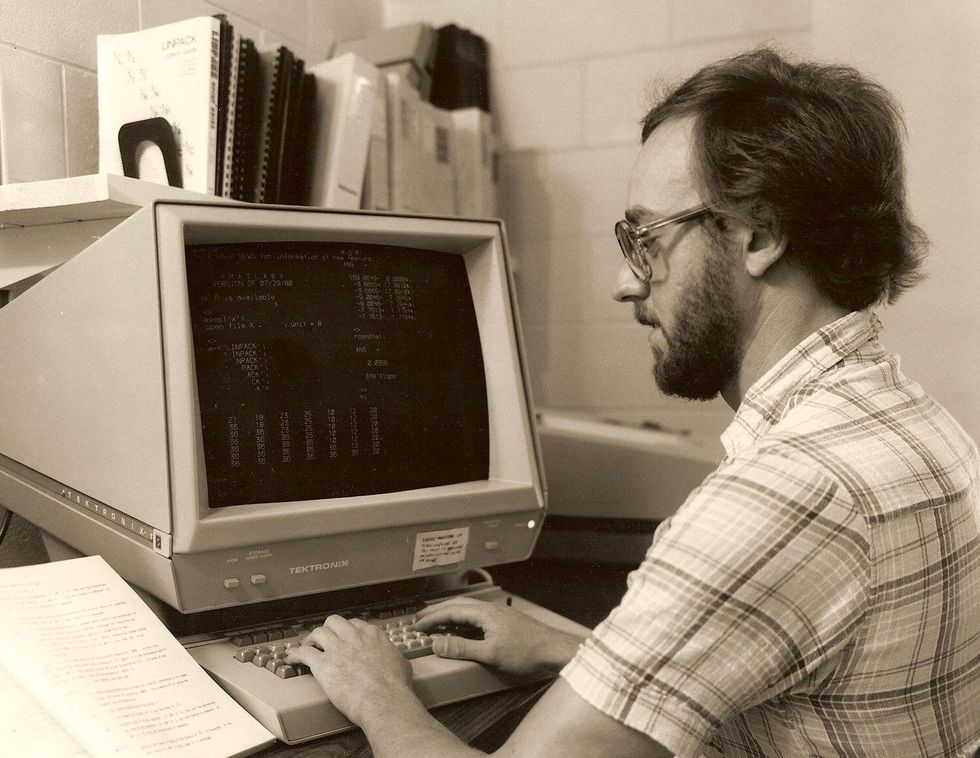[ad_1]

Jack Dongarra’s desire career growing up was to train science at a community substantial school in Chicago.
“I was pretty fantastic in math and science, but I was not a especially good student,” Dongarra claims, laughing.
After he graduated large school, there was only just one college he required to show up at: Chicago State. That’s mainly because, he suggests, it was identified for “churning out instructors.” Chicago Condition accepted his application, and he decided to key in mathematics.
His physics professor prompt that Dongarra use for an internship at the Argonne National Laboratory, in Lemont, Sick., a close by U.S. Office of Strength science and engineering research center. For 16 months he worked with a team of researchers creating and producing EISPACK, a deal of Fortran routines that compute the eigenvalues and eigenvectors of matrices—calculations frequent in scientific computing.
Dongarra acknowledges he did not have a qualifications in or understanding of eigenvalues and eigenvectors—or of linear algebra—but he loved what he was doing. The experience at Argonne, he suggests, was transformative. He experienced observed his passion.
“I considered it was a neat thing to do,” he claims, “so I held pursuing it.”
About Jack Dongarra
Employer: College of Tennessee, Knoxville
Title: Professor emeritus, laptop science
Member quality: Daily life Fellow
Alma mater: Chicago Point out University
The IEEE Lifestyle Fellow has since produced pioneering contributions to numerical algorithms and libraries for linear algebra, which permitted software program to make great use of significant-effectiveness components. His open-resource software package libraries are used in just about each and every computer system, from laptops to the world’s swiftest supercomputers.
The libraries consist of primary linear algebra subprograms (BLAS), the linear-algebra package deal LAPACK, parallel digital machines (PVMs), instantly tuned linear algebra application (ATLAS), and the high-effectiveness conjugate gradient (HPCG) benchmark.
For his do the job, he was honored this calendar year with the 2021 A.M. Turing Award from the Association for Computing Equipment. He received US $1 million as element of the award, which is regarded as the Nobel Prize of computing.
“When I consider about prior Turing Award recipients, I’m humbled to imagine about what I’ve realized from their publications and papers,” Dongarra claims. “Their programming languages, theorems, procedures, and requirements have served me establish my algorithms.
“It’s a tremendous honor to be this year’s receiver. The award is a recognition by the computer-science local community that the contributions we are creating in large-performance computing are essential and have an impact in the broader laptop or computer-science group and science in common.”
Dongarra did not end up educating science to superior college pupils. In its place, he grew to become a professor of electrical engineering and laptop or computer science at the College of Tennessee in Knoxville, where he taught for 33 yrs. The university lately named him professor emeritus.
Entrepreneurial Spirit
After graduating from Chicago Point out in 1972 with a bachelor’s diploma in mathematics, Dongarra went on to go after a master’s diploma in computer science at the Illinois Institute of Know-how, also in Chicago. While there he labored a single working day a 7 days for Argonne with the exact same workforce of researchers. Right after he received his degree in 1973, the lab hired him complete time as a researcher.
With encouragement from his colleagues to pursue a Ph.D., he remaining the lab to study utilized arithmetic at the University of New Mexico in Albuquerque. He honed his information of linear algebra there and started doing the job out algorithms and composing software package.
He returned to Argonne immediately after getting his doctorate in 1980 and worked there as a senior scientist right until 1989, when he bought the possibility to fulfill his desire of training.
He was made available a joint place instructing laptop or computer science at the University of Tennessee and conducting analysis at the close by Oak Ridge National Laboratory which, like Argonne, is a Division of Vitality facility.
“It was time for me to try out some new factors,” he states. “I was ready to try out my hand at academia.”
He says Oak Ridge operated in a equivalent way to Argonne, and the tradition there was much more or a lot less the exact.
“The problem,” he claims, “was becoming a college professor.”
“The Turing Award is a recognition by the laptop science local community that the contributions we are creating in substantial-efficiency computing are significant, and have an impression in the broader pc science neighborhood and science in standard.”
College tradition is incredibly diverse from that at a federal government laboratory, he says, but he immediately fell into the rhythm of the tutorial placing.
While he beloved instructing, he suggests, he also was attracted to the option the college gave its instructors to get the job done on technological innovation they are passionate about.
“You stick to your have path and course of analysis,” he states. “I’ve prospered in that surroundings. I interact with wise people, I have the potential to travel all-around the world, and I have collaborations going on with people today in numerous international locations.
“Academia gives you this independence to do items and not be constrained by a company’s generate or its drive. Fairly, I get to operate on what motivates me. That’s why I’ve stayed in academia for so several years.”

In 1980, Dongarra worked as a senior scientist at Argonne Nationwide Laboratory, in Lemont, Sick.Jack Dongarra
Dongarra founded the university’s Progressive Computing Laboratory, whose mission is to supply resources for large-effectiveness computing to the scientific local community. He also directs the school’s Middle for Information and facts Technology Research.
He is now a distinguished researcher at Oak Ridge, which he phone calls “a great place, with its state-of-the-artwork equipment and the latest computers.”
Application for Supercomputers
It was functioning in creative environments that led Dongarra to come up with what a lot of explain as world-altering software libraries, which have contributed to the growth of high-general performance computing in many locations together with synthetic intelligence, facts analytics, genomics, and wellness care.
“The libraries we designed have basic elements that are essential in numerous areas of science so that end users can draw on people components to assist them remedy their computational difficulties,” he says. “That computer software is moveable and effective. It has all the characteristics that we want in conditions of staying understandable and providing trustworthy final results.”
He’s at present functioning on creating a computer software library for the world’s quickest supercomputer, Frontier, which lately was put in at the Oak Ridge lab. It is the very first computer system that can method additional than 1 quintillion functions per 2nd.
Personal computer-Science Recognition
Dongarra has been an IEEE member for additional than 30 years.
“I love interacting with the local community,” he states in outlining why he carries on to belong. “Also I take pleasure in studying IEEE Spectrum and journals that are related to my precise industry.”
He has served as an editor for quite a few IEEE journals like Proceedings of the IEEE, IEEE Pc Architecture Letters, and IEEE Transactions on Parallel and Dispersed Methods.
Dongarra states he’s a massive promoter of IEEE meetings and workshops, particularly the Intercontinental Meeting for Substantial Effectiveness Computing, Networking, Storage, and Examination, sponsored by ACM and the IEEE Pc Society, of which he is a member. He’s been attending the event every single 12 months since 1988. He has won a lot of awards at the conference for his papers.
“That meeting is definitely a homecoming for the large-performance computing group,” he suggests, “and IEEE plays a important position.”
IEEE is proud of Dongarra’s contributions to computing and has honored him above the many years. In 2008 he obtained the initial IEEE Medal of Excellence in Scalable Computing. He also gained the 2020 Personal computer Pioneer Award, the 2013 ACM/IEEE Ken Kennedy Award, the 2011 IEEE Charles Babbage Award and the 2003 Sidney Fernbach Award.
“I’m pretty joyful and happy to be a member of IEEE,” he states. “I believe it offers a worthwhile services to the local community.”
[ad_2]
Resource website link




More Stories
Internet Explorer Crashes – Stop Internet Explorer Crashing in Minutes
Jobs for Felons in Information Technology – Find Out If You Are a Fit for These Felon Friendly Jobs
Advantages of Information Technology